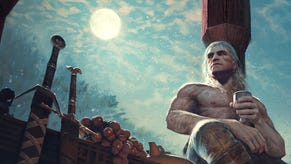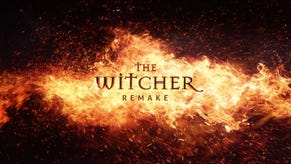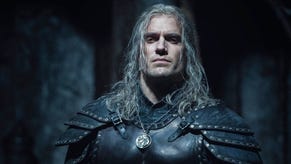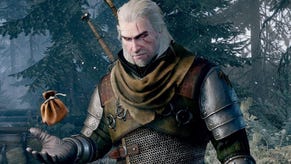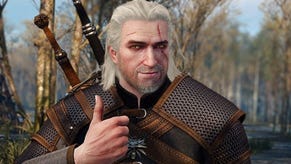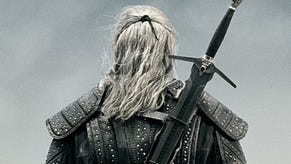The Witcher 2: Assassins of Kings
Son of a witch.
When it works, it's fantastic. The game routinely pits you against a half-dozen or more enemies, and surviving these encounters by the skin of your teeth through quick thinking and preparation feels massively satisfying. There's a sense that Geralt wins fights not because he's the hero, but because of talent, training and intelligence. Which, of course, makes him even more of a hero. He's a great protagonist.
The problem is one of balancing. The Witcher 2 has an inverted difficulty curve. Rather than starting you off gently and getting tougher as you learn, The Witcher 2 starts off ungodly tough after an inadequate tutorial, then eventually plateaus into being hugely tricky, before you finally end up progressing far enough into the game's skill trees that everything becomes too easy.
Where most games expect you to climb a mountain, The Witcher 2 is more like being thrown out of a plane after a parachute and then expected to walk the last 20 miles. This imbalance extends to the gear Geralt finds, which is all over the place. You might painstakingly craft a jacket from the carapaces of forest spiders only to find something better with relatively little effort not 20 minutes later.
Thankfully, the game lets you lower or increase the difficulty at any time, although I'm not sure if starting off on Easy is all that wise. Instead, I'd recommend you learn early on that the shield glyph and charm glyph - the two lowest magic attacks on the list revealed by pressing Ctrl - are your best friends in all those wildly unfair fights.
Besides, it's only when you're struggling with fights that you'll get involved in the many excellent ways Geralt has of preparing for them. By sitting Geralt down to meditate (a pose in which he looks so absurdly badass that I can't help but wonder how many gamers will take up meditation as a result) you get access to the alchemy and potion-drinking menus, where you can mix any number of poisonous tonics that will buff him slightly. There are also traps, which can be assembled and set in advance.
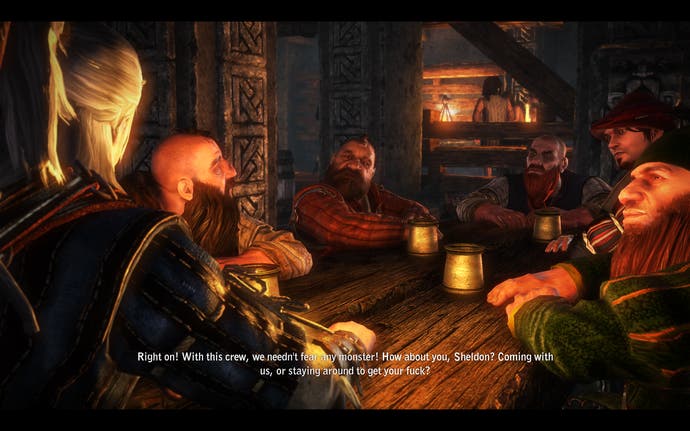
The sum of all of this is a combat system with all the potential in the world, but that coughs up everything from perfect duels and nightmarish battles against ridiculous odds to dull cakewalks and fights so infuriating that you need to turn the game off for a bit to make a cup of tea and do some catatonic staring out of the window.
It's a little disappointing, but it's completely fixable should CD Projekt choose to put out an Enhanced Edition, as it did with the first game. And it's something of an achievement that 'combat that's all over the place' is by far the biggest complaint anybody could level at the game.
The rest of The Witcher 2's errors - which consist of small glitches, bits of exposition getting jumbled up because you did some quests in the wrong order, a couple of crappy scripted events and some of the worst doors I've ever encountered in a game - are all inconsequential things that leave you free to enjoy one of the most impressive RPGs ever made.
Combat might have its low and high points, but the talking and exploring is one long high point filled with upward spikes into brilliance. Without wanting to give away a single moment, I found myself routinely cheering at my monitor, laughing more times than that, and had even more occasions where I stared hopelessly at my conversation options, too captivated by the situation to make a choice.
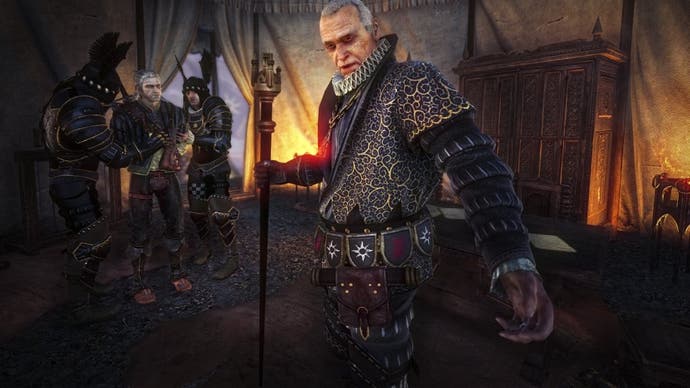
Speaking of choices, one decision you make in the game's first half alters the rest of it more radically than I ever would have believed if I hadn't talked to a friend who followed the other path afterwards. Between this, correcting all your other mistakes and following a different path down the skill tree, there's so much meat to be found in a second play-through that it's barely even a decision. If you've a completist bone in your body, you will be playing this game again.
Fans of RPGs should consider The Witcher 2 a must-buy. There's simply no competitor that can touch it in terms of poise, characterisation and storytelling, or the way in which it treats you not as a player - someone to be pandered to and pleased - but as an adult, free to make your own mistakes and suffer a plot in which not everyone gets what they deserve.
Everybody else should approach excitedly, but with a little caution. The Witcher 2's opening ten hours are as impressive as they are clumsy, and a little patience is needed until the game hits its stride. What a stride, though. What bravery and gravity. With a little time investment, this game offers everything the fantasy genre can be.

